A Survivor’s Guide to Chemotherapy and Sleep
- by Paul Watson
- Updated: June 22, 2022
Table of Contents
Cancer sucks. As a late-stage cancer survivor, I know this all too well. I know that it can be difficult to sleep when you’re undergoing chemotherapy. In this article, I’m going to share with you my cancer experience and how it interfered with my sleep. I’ll also use medically backed sources to discuss how you can sleep better when undergoing chemotherapy.
Note: The content on Sleepopolis is meant to be informative in nature, but it shouldn’t take the place of medical advice and supervision from your healthcare provider. If you feel you may be suffering from any sleep disorder or medical condition, please see a trained medical professional.
How My Sleep Was Affected by Chemotherapy
I had five rounds of intense chemotherapy and was given a 50/50 chance of survival. Needless to say, that terrifying prognosis and the thought of going through chemo made sleeping difficult. It started the night I found out I was diagnosed and got worse when I started chemotherapy, where the effects of the chemicals made me feel terrible and interfered with my sleep.
Before I underwent my first round of chemotherapy, I had a port put in my chest that allowed the medicine to flow directly to my heart, maximizing its effects. Not everyone needs a port, but I did because my cancer was so advanced. If you’re not sure what a port is, let me explain: It’s round and it fits directly under your skin. Mine was put in at the top of my chest.
Even after the scar from where they cut me open to put the port in stopped hurting, I had to deal with the pain that came whenever I put any pressure on it. Not surprisingly, studies have shown that pain is one of the primary reasons behind sleep disturbance in folks undergoing chemotherapy. (1)
Anxiety was also a contributor to poor sleep. I was getting used to having a “new” chemo-ridden body. I was hairless, bald, and looked emaciated. In short, I felt ugly. Anxiety stemmed from that feeling of low self-esteem. I was also anxious about the whole “not dying” thing. Since anxiety is linked to insomnia, (2) it made sleeping difficult.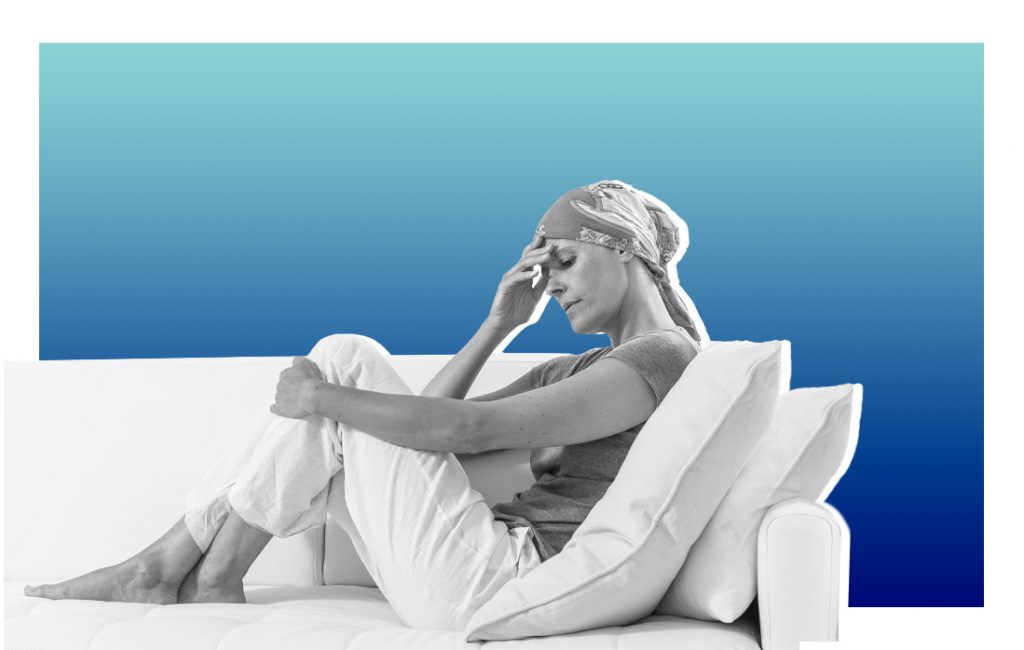
I also experienced fatigue, which is one of the most common side effects of chemotherapy. (3) I was so fatigued during chemotherapy that I could barely walk a quarter of a mile at a time. Research shows that the more fatigued cancer patients are, the less quality of sleep they have. (4)
I also experienced a ringing in my ears that was caused by one of the chemotherapy drugs I was taking. Since I prefer to sleep without hearing a constant, high-pitched tone, I used a box fan to create some white noise. Harvard Health Publishing agrees, saying that white noise helps mask the ringing. (5)
Recommendations for Better Sleep During Chemotherapy
Sleeping plays an important role when undergoing chemotherapy, since this is how the body heals itself. With that in mind, I’ve compiled a list of recommendations for sleeping better during chemotherapy based on my own experiences as well as relevant medical sources. I’ll also discuss how seniors and adolescents can get better sleep while undergoing chemotherapy.
Find Moments To Be Silly
Since depression can exacerbate fatigue and reduce sleep quality (6), it is important to take care of your emotional health. When I added a dash of silliness to my cancer-ridden days, it really helped my mood. For instance, after I went bald, I’d tell the nurses that they could draw or write whatever they wanted on my head (I called it my blank canvas).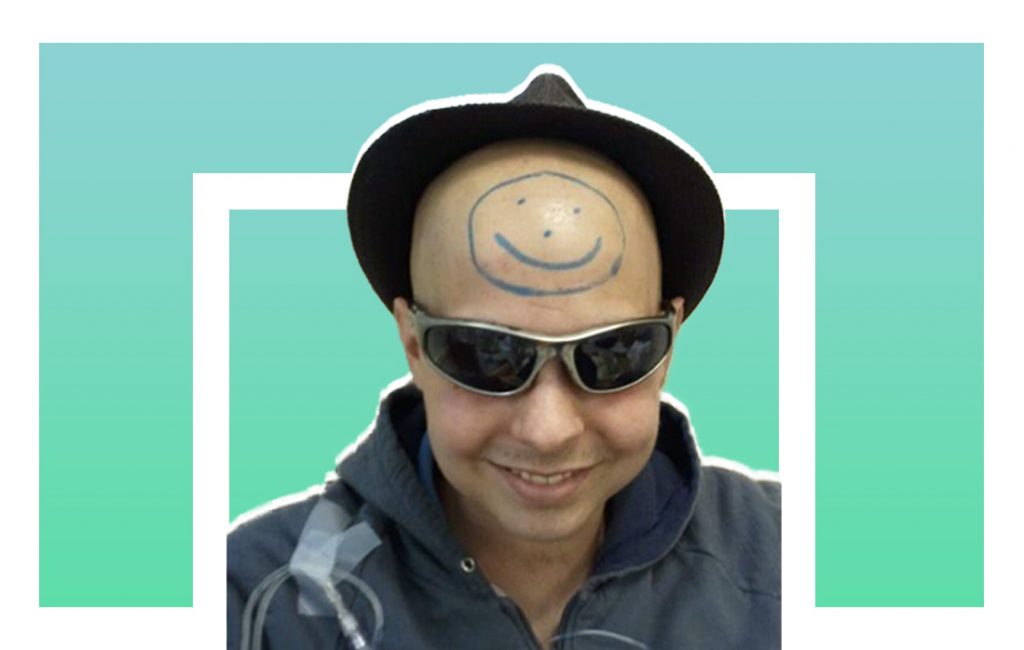
The first nurse who did so drew a smiley face, so I told folks I “always had a smile on my face.” In later days, I’d have “Cancer Sucks” and “Wonder Boy” written on my head as well.
Be Willing To Change Sleep Positions
To avoid putting pressure on my port, I couldn’t sleep on my stomach, which was my preferred sleep position prior to my cancer diagnosis. Switching to my side with a pillow between my knees helped. This change will be easier if you use a comfortable mattress that caters to your new or preferred sleep position.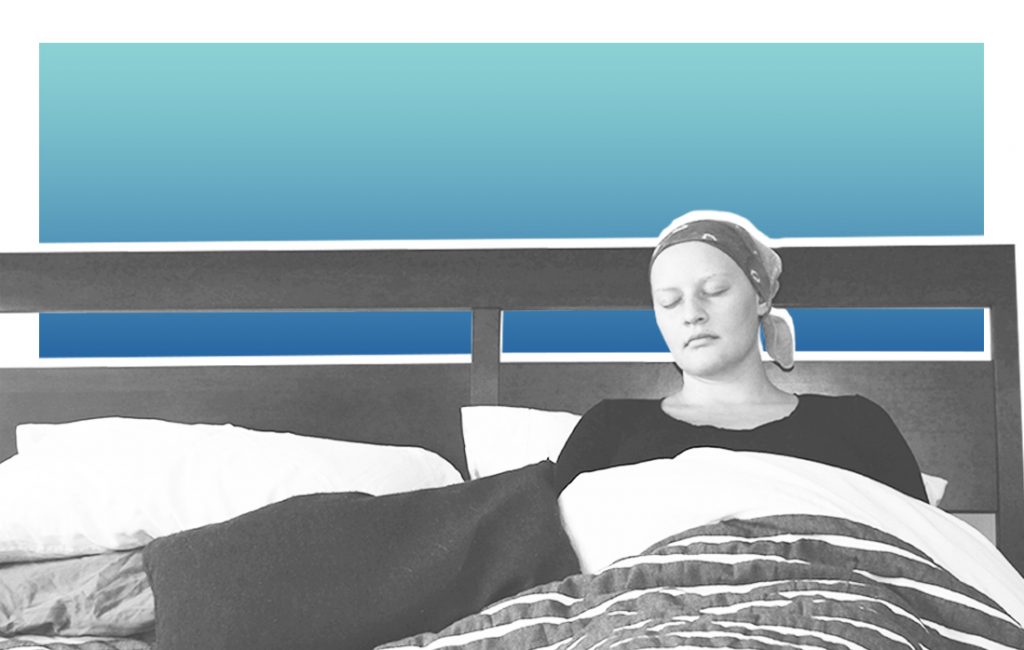
Gail Trauco of The PharmaKon LLC, an oncology nurse with 42 years of experience, says soaking in at least 16 ounces of Epsom salts may help draw toxins out of your body and promote relaxation, benefitting sleep as a result. She also recommends soaking in about 32 ounces of magnesium flakes, which can help reduce your stress and induce sleep. You can use this as a good excuse to get in the tub, since Nurse Trauco says being in warm water relaxes your muscles.
Wind Down Before Bedtime
Cancer is incredibly stressful, so it can be good to have some time to just relax and get your mind off it all. If you like puzzles, try working on one before you go to bed. If you’re having a hard time reading traditional books (I did because of the fatigue), then consider print magazines or comic books.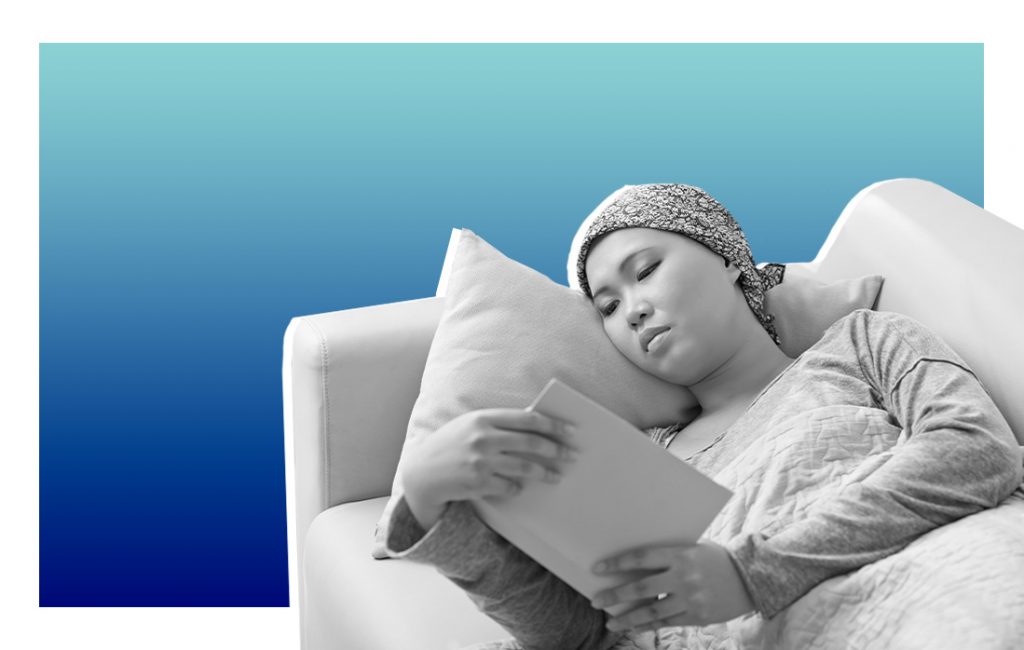
This can be a great time to lean into your geeky side. Nobody’s going to make fun of you for buying a Captain America comic book if you have cancer.
Get Up and Move During the Day
One study suggests performing aerobic exercise for 50 to 60 minutes at a time will help you sleep better, which comes as no surprise. (7) If you’re not able to exercise for that amount of time, don’t beat yourself up, just do what you can.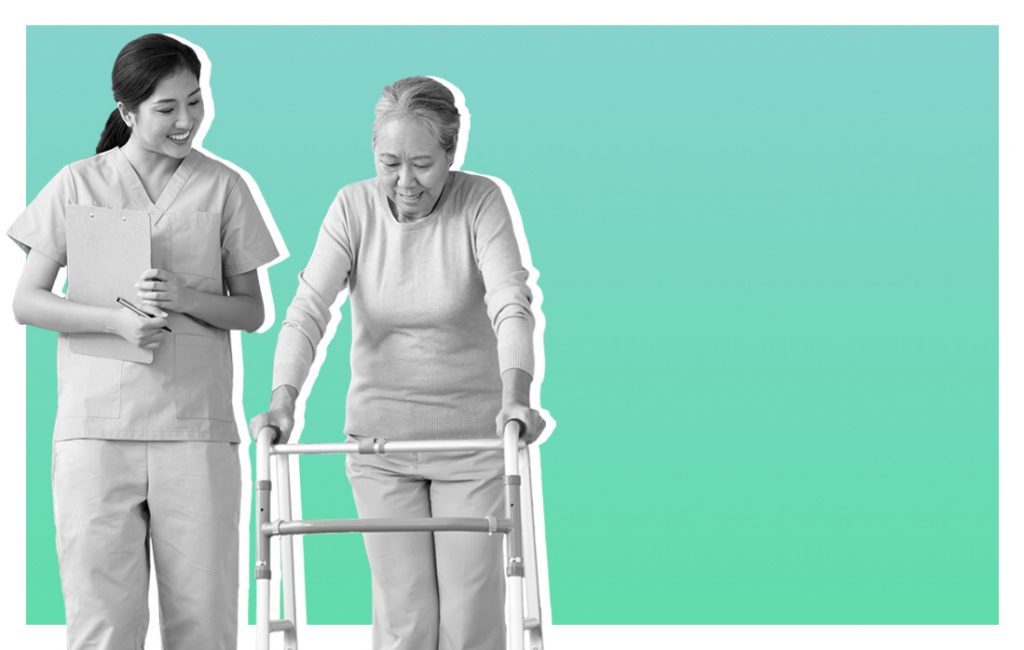
The important thing is to find an exercise that you can do most days for however long you can do it. Dr. Carleara Weiss, Sleep Science Advisor at Aeroflow Sleep, says that the duration and type or exercise that can benefit cancer patients vary. Although it can be difficult to engage in extended physical activity during chemotherapy treatment, new studies show that as little as 25 minutes of exercises such as yoga and walking are beneficial for sleep quality. (8) Personally, I went on walks in my neighborhood and in the hospital. During my hospital stays, I often walked around with my IV pole in my patient gown.
Apply Essential Oils
Essential oils are something I never tried but wish I had. Nurse Trauco recommends applying essential oils behind the base of the ear lobe, since empirical evidence suggests they can have sedative effects. These oils include lavender, rose, cedar, and sweet orange oil. She says that if you want to put oils in a diffuser, do so about an hour prior to sleep as some recent studies on the benefits of essential oils for sleep suggest that aromatherapy can improve the sleep quality of cancer patients. (9)
Practice Yoga
Yoga can also help better your sleep, even if its focus is on practices with minimal physical activity, such as breathing and meditation. (10) This is something I never tried, but I think would have helped.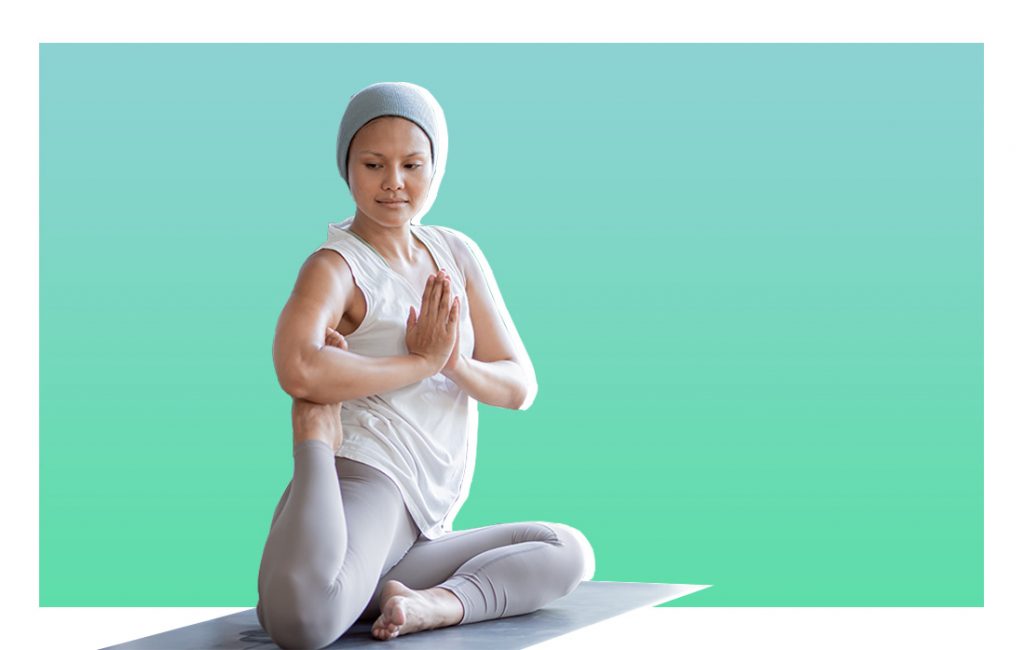
Avoid Caffeine
Nurse Trauco recommends avoiding caffeine after 4:00pm (recent studies even suggest 3:00pm as a cutoff point). Since caffeine is a stimulant, you may want to think twice about drinking that cup of coffee at night.
Be Careful When Using Sleep Medications
I used sleep medications to help me get some shut-eye, but looking back, I wish I’d tried some other sleep tactics. While sleep aids can help with insomnia in people undergoing chemotherapy, it’s important to understand that negative side effects of such medications include sleepwalking, driving while not fully awake, dizziness, memory loss, and headaches. (11) There is also limited information on how sleep aids interact with chemotherapy, so their use is overall discouraged.
Sleep Advice for Seniors Undergoing Chemo
There are ways seniors can sleep better while undergoing chemo. One study recommends seniors attend an exercise class to help improve their sleep. If you have access to low-intensity exercise classes such as water aerobics, it can help strengthen your body while also strengthening your social support system. (12)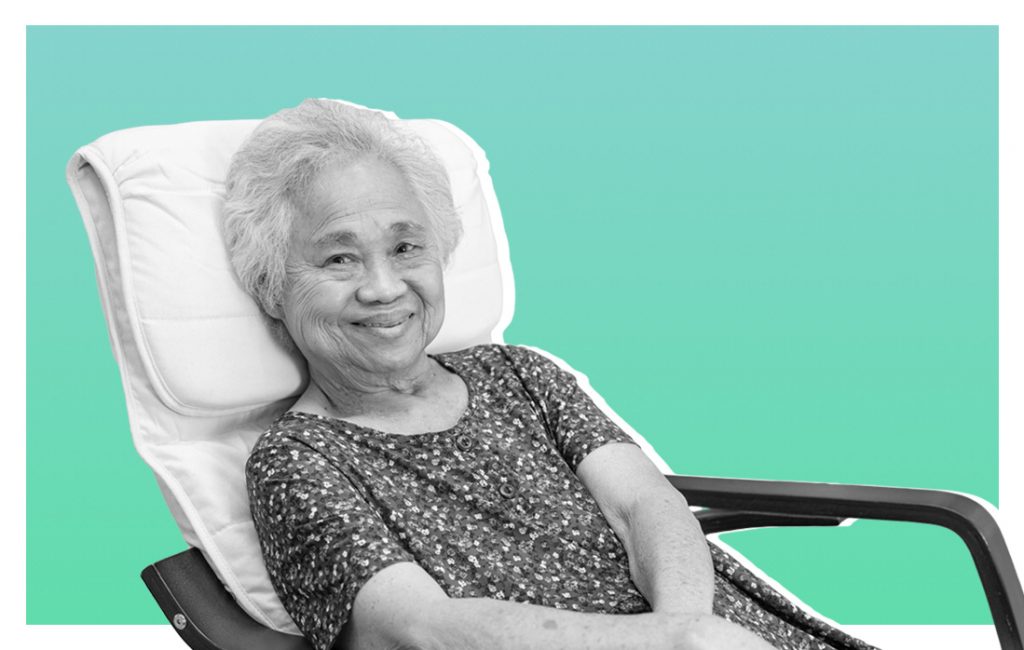
According to a study that examined 140 elderly chemotherapy patients, 62.9% had poor sleep quality, with pain being a major cause. (13) That’s why it’s important for seniors to have a distraction from the pain in addition to following the medical advice of their healthcare provider. While they may want to manage the pain with medication, distractions can include anything from talking with friends and family to watching a favorite TV show.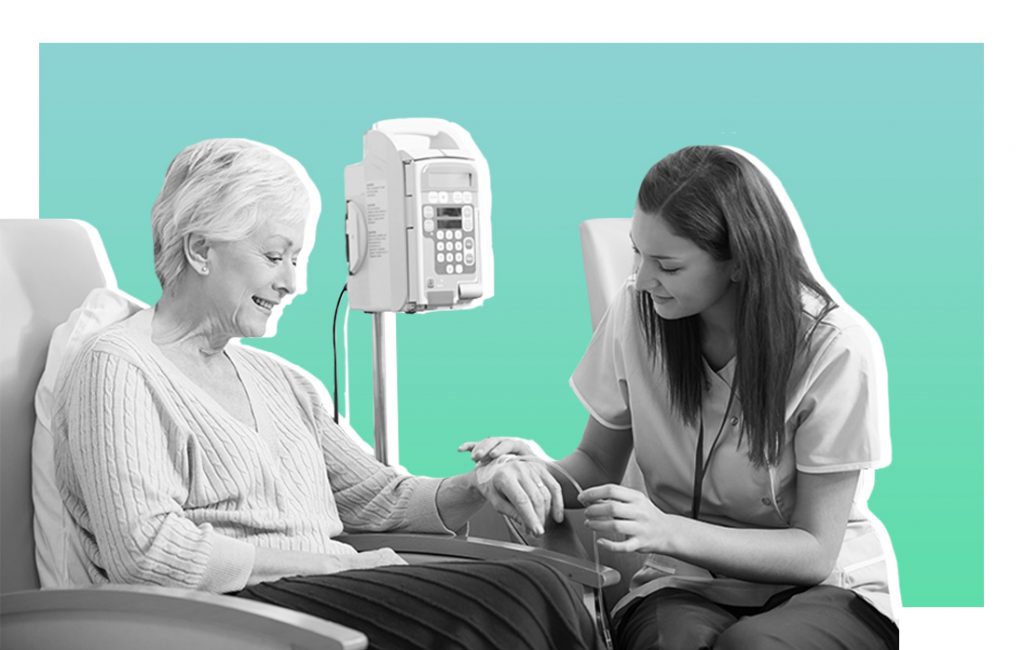
This is also a good time to pull out an old rocking chair, if available. Nurse Trauco says that from her clinical experience, spending 15 to 30 minutes in a rocking chair could be a great way to deal with anxiety. She says that the rocking motion lowers your vital signs and changes your brain waves to a resting state.
Sleep Advice for Adolescents Undergoing Chemo
If your child is currently undergoing chemotherapy, you should know that they will likely experience fatigue and wake up in the middle of the night, but sticking to a schedule and practicing regular activities as much as possible may help them sleep. (14) Nurse Trauco agrees, saying that a regular sleep/wake routine helps develop improved sleep.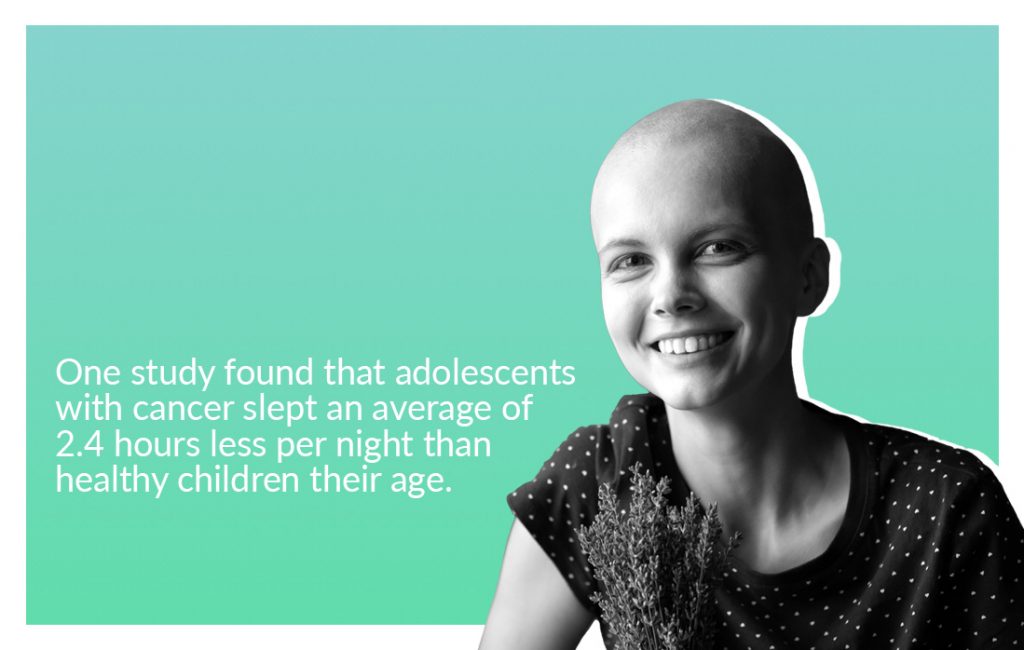
One study found that adolescents with cancer slept an average of 2.4 hours less per night than healthy children their age. The researchers found that some physical activity each day can help improve their sleep. (15) So encourage your child to play outside when they feel up to it.
Also, parents, I recommend you lean on your support system of family and friends. I was living with my parents throughout my cancer, and I encouraged them to visit with friends when they could. It typically was only an hour or so each week, with one parent going out and one parent staying with me. Despite the brevity of each visit, I think it really helped their emotional state.
Last Word From Sleepopolis
I hope my experience and the sources I’ve cited in this piece have helped give you some insight on ways to improve your sleep in spite of chemotherapy treatments. Some ways to get better shut-eye include taking care of your emotional and physical health, winding down before sleep, and soaking in a bathtub. 
Please remember that we are not medical experts, so be sure to speak with your healthcare provider if you have any medical questions.
Thanks for letting me share my story with you.
References
- Hong, J et al. The influence of chemotherapy-induced neurotoxicity on psychological distress and sleep disturbance in cancer patients. Current Oncology. Aug 2014.
- Choueiry, N et al. Insomnia and Relationship with Anxiety in University Students: A Cross-Sectional Designed Study. PLOS One. Feb 22, 2016.
- Spichiger, E et al. Fatigue in patients undergoing chemotherapy, their self-care and the role of health professionals: A qualitative study. European Journal of Oncology Nursing. Apr 2012.
- Imanian, M et al. Sleep Quality and Fatigue among Breast Cancer Patients Undergoing Chemotherapy. International Journal of Hematology-Oncology and Stem Cell Research. Oct 1, 2019.
- “Tinnitus: Ringing in the ears and what to do about.” Harvard Health Publishing. https://www.health.harvard.edu/diseases-and-conditions/tinnitus-ringing-in-the-ears-and-what-to-do-about-it
- Fiorentino, Lavinia et al. “The Symptom Cluster of Sleep, Fatigue and Depressive Symptoms in Breast Cancer Patients: Severity of the Problem and Treatment Options”. Drug discovery today. 2011.
- Courneya, K et al. Effects of exercise dose and type on sleep quality in breast cancer patients receiving chemotherapy: a multicenter randomized trial. Breast Cancer Research and Treatment. Feb 12, 2014.
- Kreutz, Charlotte et al. “Effects of physical and mind-body exercise on sleep problems during and after breast cancer treatment: a systematic review and meta-analysis.” Breast cancer research and treatment. Jul 2019.
- Hamzeh, Sahar et al. “Effects of Aromatherapy with Lavender and Peppermint Essential Oils on the Sleep Quality of Cancer Patients: A Randomized Controlled Trial.” Evidence-based complementary and alternative medicine. Mar 25, 2020.
- Palesh, O et al. Prevalence, putative mechanisms, and current management of sleep problems during chemotherapy for cancer. Nature and Science of Sleep. Dec 14, 2012.
- Moore, T et al. Sleep Aid Use During and Following Breast Cancer Adjuvant Chemotherapy. Psycho-Oncology. Mar 2011.
- “Preventing Chronic Disease.” Center for Disease Control. https://www.cdc.gov/pcd/collections/pdf/PCD_HealthyAging_2008-10_web.pdf
- Mansano-Schlosser, T et al. Factors associated with sleep quality in the elderly receiving chemotherapy. Revista Latino-Americana de Enfermagem. Dec 2012.
- Erickson, J et al. Fatigue, Sleep-wake Disturbances, and Quality of Life in Adolescents Receiving Chemotherapy. Journal of Pediatric Hematology/Oncology. Jan 2011.
- Orsey, A et al. “Physical activity (PA) and sleep among children and adolescents with cancer.” Pediatric Blood & Cancer. Jun 18, 2013.
